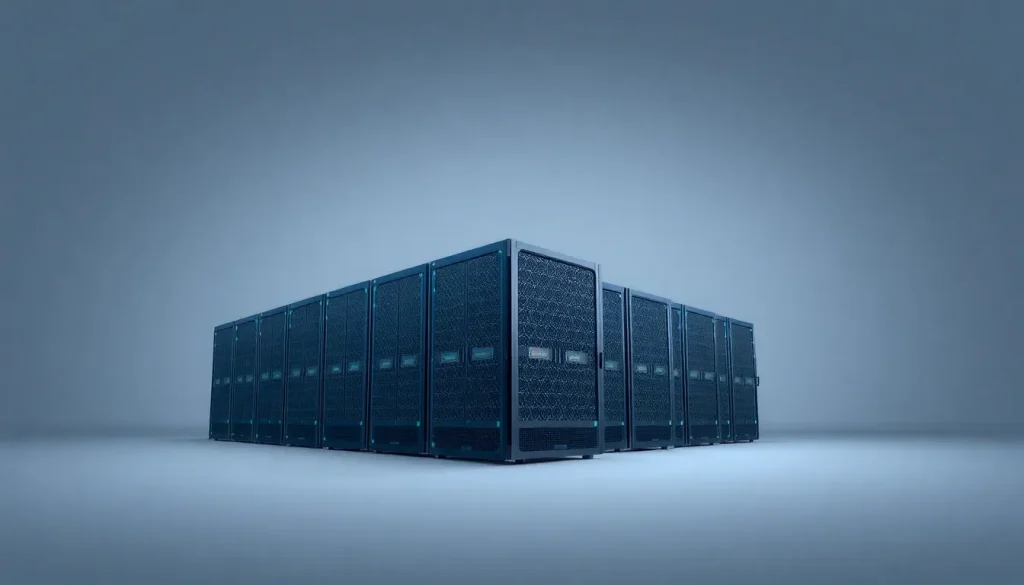Dell PowerFlex and Regatta Database Solution Surpasses Traditional Limits

In an era where data is continuously expanding and evolving, organizations are increasingly turning towards innovative solutions to overcome the limitations imposed by traditional databases. The combination of Dell's PowerFlex and the Regatta database promises to reshape how businesses manage, analyze, and utilize their data. Let's explore the transformative capabilities of this technology duo and how it addresses persistent challenges in the database landscape.
- Dell PowerFlex: An Overview of Hyper-Converged Infrastructure
- Understanding the Regatta Database: Features and Capabilities
- The Synergy of Dell PowerFlex and Regatta Database
- Performance Testing Insights
- The Future of Data Management with PowerFlex and Regatta
- Conclusion: A Transformative Approach to Database Limitations
Dell PowerFlex: An Overview of Hyper-Converged Infrastructure
Dell PowerFlex stands as a robust hyper-converged infrastructure (HCI) solution designed to cater to the evolving requirements of modern data environments. It offers a versatile alternative to the VxRail system, which is predominantly built on VMware.
PowerFlex supports multiple hypervisors, making it adaptable for diverse workloads and integration with Kubernetes, ensuring businesses can maintain flexibility in their operations.
- Software-Defined Architecture: PowerFlex provides a software-defined, scale-out block storage solution, allowing organizations to manage their storage needs efficiently.
- Unified Storage Management: It features a single global namespace that simplifies capacity management.
- Disaggregated Architecture: This enables independent scaling of compute and storage resources based on the organization’s requirements.
By employing massively parallel processing across numerous nodes, PowerFlex significantly enhances the performance of data computations, resulting in faster execution times for complex tasks.
Understanding the Regatta Database: Features and Capabilities
The Regatta database brings a unique offering to the table with its ability to handle transactional (OLTP), analytical (OLAP), and vector data processing. It is designed to scale seamlessly, accommodating tens of thousands of nodes and providing a drop-in replacement for existing PostgreSQL databases.
Key attributes of the Regatta database include:
- Extensibility: It can manage semi-structured and unstructured data, essential for today’s varied data formats.
- High Scalability: The architecture supports scaling out efficiently, addressing the needs of large enterprises.
- Performance: Capable of handling large workloads with impressive throughput and low latency.
The Synergy of Dell PowerFlex and Regatta Database
A recent white paper published by Dell highlights how the integration of the Regatta database with PowerFlex systems overcomes many limitations traditionally faced by legacy databases. This combination addresses key issues such as:
- Sharding Complexity: Simplifies data distribution across multiple nodes.
- Cost Efficiency: Reduces operational costs by optimizing resource utilization.
- Enhanced Performance: Delivers high IOPS (Input/Output Operations Per Second) and bandwidth capabilities.
- Scalability Challenges: Allows for linear scaling as the system grows, enabling organizations to expand without performance degradation.
Performance Testing Insights
The Dell white paper titled “Regatta Database Performance and Best Practices on Dell PowerFlex” outlines extensive performance tests conducted on the combined system. Highlights include:
- Transactional Performance: Achieved nearly one million IOPS under physical read and write operations.
- Analytics Workload: Five out of nine distributed queries showed linear scalability with cluster size increases.
- Kafka Streaming Data: Successfully ingested one billion rows, with a row insertion rate exceeding one million rows per second.
This comprehensive testing demonstrates the capabilities of the joint solution and its potential to handle both transactional and analytical workloads efficiently.
The Future of Data Management with PowerFlex and Regatta
The synergy between Dell PowerFlex and the Regatta database is paving the way for a new paradigm in data management. Organizations can now leverage:
- Robust Architectural Framework: Designed to support high-performance transactional and analytical workloads.
- Dynamic Resource Allocation: Adjust resources as necessary to meet evolving business demands.
- Cost-Effective Scaling: Easily scale operations without excessive overhead costs.
Conclusion: A Transformative Approach to Database Limitations
In conclusion, the integration of Regatta's advanced database capabilities with Dell PowerFlex's high-performance storage infrastructure stands as a transformative solution. This combination not only addresses the limitations of traditional databases but also offers a scalable, efficient, and cost-effective architecture designed for the demands of modern data environments.




Leave a Reply